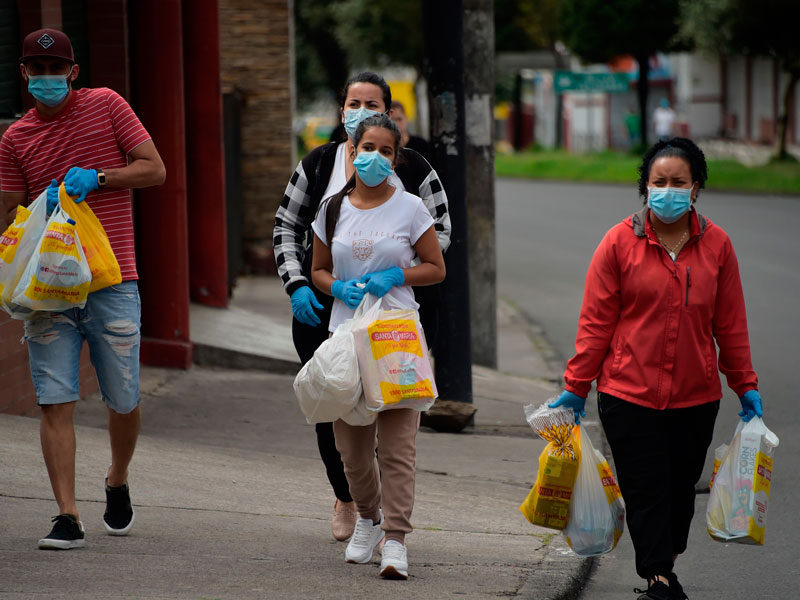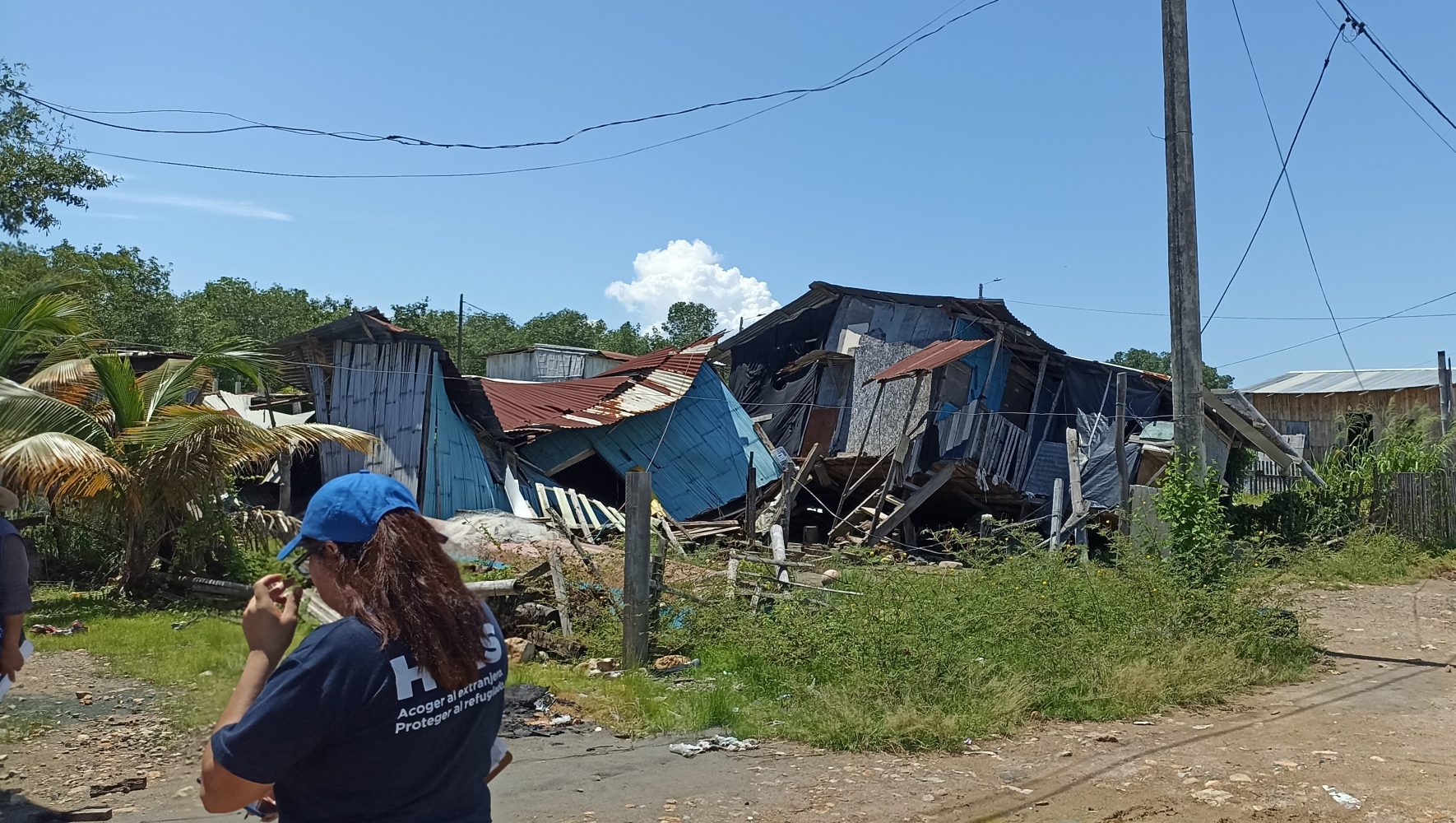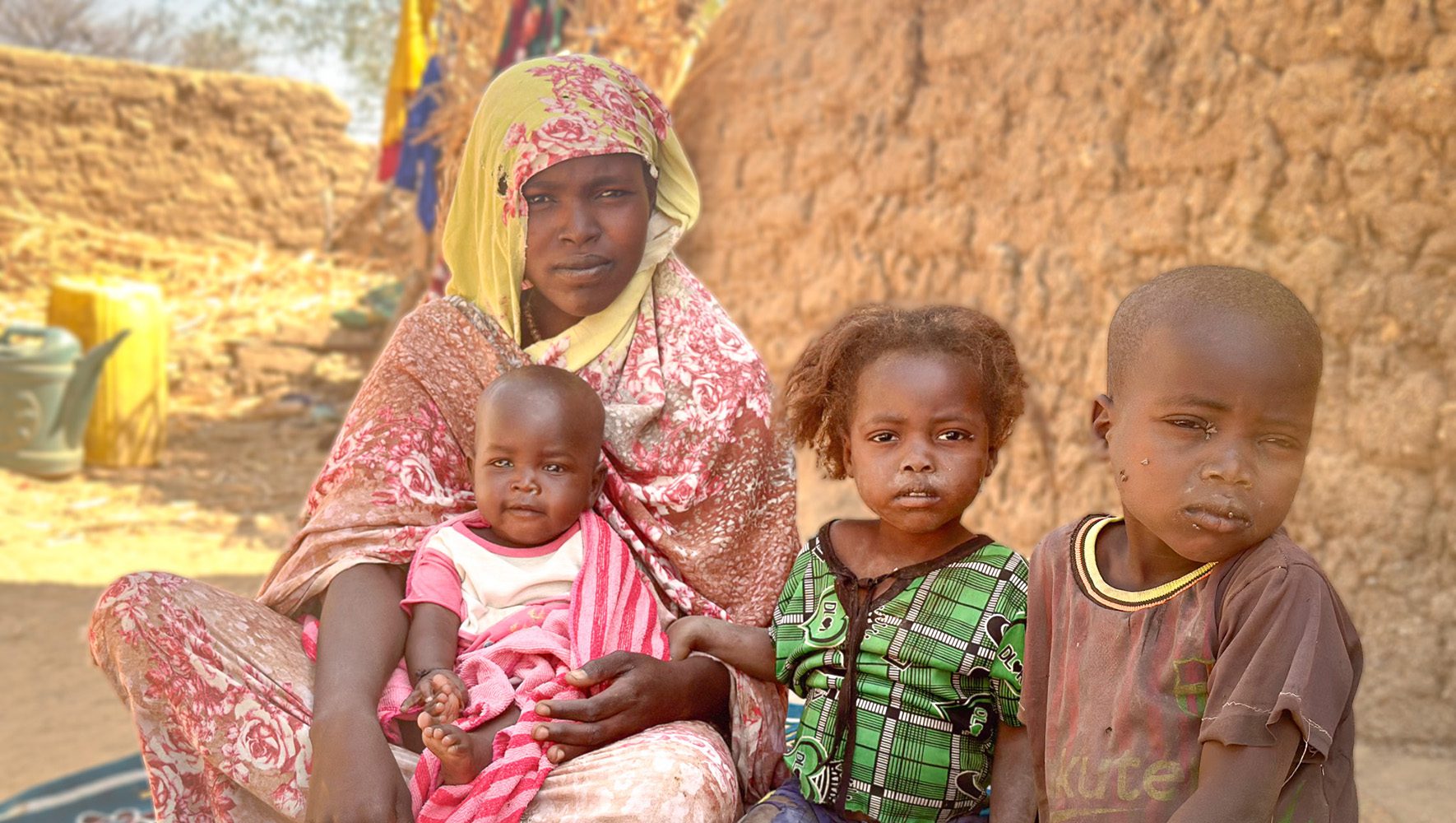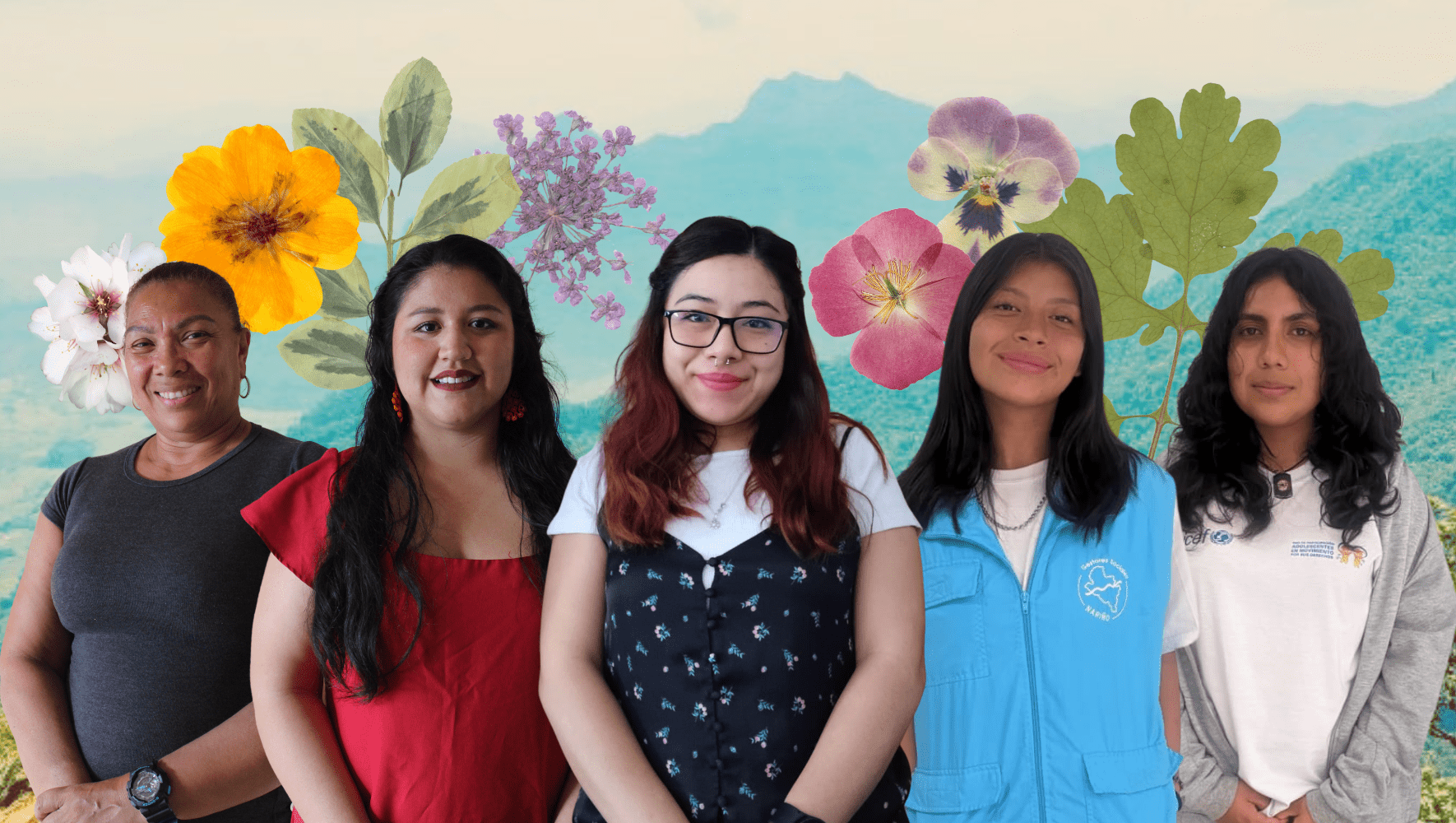Ensuring Refugees’ Basic Needs During Pandemic
By Sharon Samber, HIAS.org
Apr 01, 2020

People wear face masks as a preventive measure against the spread of the new coronavirus, COVID-19, while returning from a supermarket in Quito on March 17, 2020 after the Ecuadorean government declared a state of emergency and ordered a curfew as an effort to stop the spread of the fast-moving COVID-19 coronavirus outbreak.
(Rodrigo Buendia/AFP via Getty Images)
Amid the COVID-19 pandemic, many of the people who HIAS assists are in crisis and adversely affected by COVID-19: they need to purchase basic needs and buy goods to help prevent the spread of the virus, and have access to food and shelter.
Emergency cash-based assistance — a critical tool that is regularly employed by humanitarian relief agencies to provide acute assistance to the most vulnerable — is now needed on an unprecedented scale to meet the surge in basic needs.
HIAS offices are working hard to keep staff and clients safe while continuing to provide essential services, but they are seeing high levels of stress among refugee clients due to lack of income.
In Panama, Ecuador, Peru, and Kenya, HIAS is providing emergency cash-based and voucher assistance to refugees with urgent protection needs. According to UNHCR, cash-based interventions are often a more dignified way of assisting people, empowering them and promoting resilience.
“In Latin America there is a high level of informality, and people rely on the cash they are getting on a daily basis selling things on the street,” explains Enrique Torrella, HIAS' regional director for Latin America and the Caribbean. “So with the quarantine, they cannot get to the streets to earn a living.”
In Nairobi, refugees are not only worried about contracting the virus but also about how they will purchase basic necessities like food, says Melonee Douglas, HIAS’ regional director for Africa and Eurasia.
“What is a health concern for us all is compounded for refugees, as prior to the pandemic most were already struggling to meet their basic needs,” Douglas explains.
In Israel, many asylum seekers have already lost their jobs due to government restrictions put into effect to slow the spread of coronavirus. HIAS' staff is working to represent clients and “unlock” some of the benefits currently only available to Israeli residents and citizens. HIAS Israel has also connected some particularly vulnerable families to a volunteer network that delivers food.
HIAS is partnering with local supermarkets in Ecuador to help asylum seekers buy food with credit, partnering with banks to pilot new delivery mechanisms that avoid direct contact, and helping refugees access information and determine eligibility for cash-based support.
For many of HIAS' offices that have had to shift to remote programming, HIAS has been able to continue to provide refugees with information on how to access assistance. The rapid response will continue in these countries and others as HIAS adapts to the continually changing situations.


